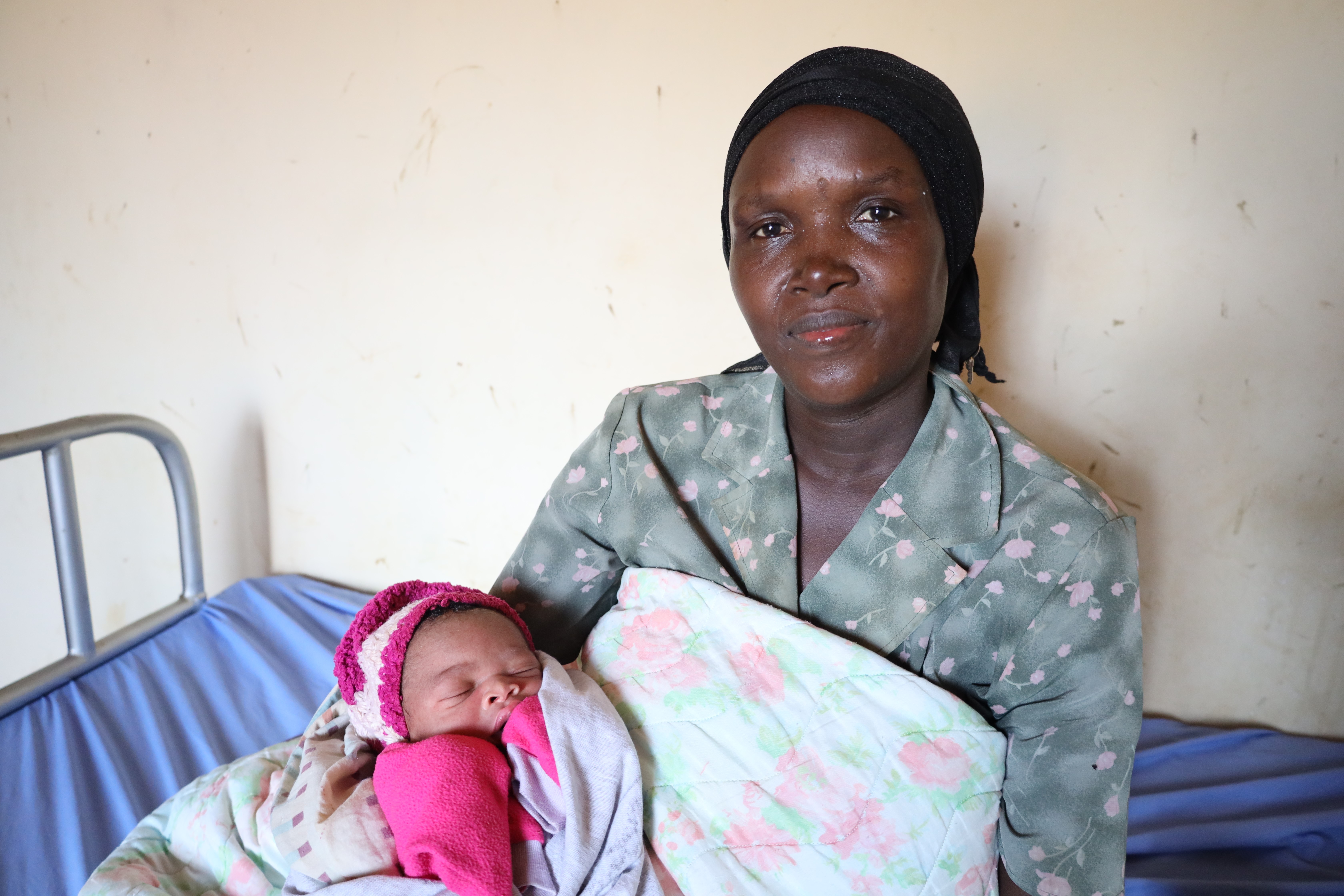In Rwanda, the ‘land of a thousand hills’, reaching the nearest health facility usually means a long walk that, until recently, took an average of 95 minutes. Although the walking time was halved to 47 minutes in 2020, it is still a challenge for many people to access health care in a timely manner. Through an innovative approach that brings greater numbers of health posts close to communities, the Government aims to further reduce walking time to under 25 minutes by 2024. The health posts serve as an interface between community health workers and health centres. Here, health workers provide essential primary care services and make referrals to hospitals for specialized services, ultimately strengthening the foundation of the health system and improving the way people receive the care they need. The health posts have also contributed to an effective national response to COVID-19, with communities still able to access basic care despite the crisis.
 Uwamariya Patricie and her newborn, delivered at the Musovu Health Post in Bugesera, Rwanda. ©WHO/Alice Rutaremara
Uwamariya Patricie and her newborn, delivered at the Musovu Health Post in Bugesera, Rwanda. ©WHO/Alice Rutaremara
“I used to seek health services at Kabagore health centre in Juru, but this place is closer now. There is one and a half hours between Musovu and Juru. When you don’t even own a bicycle the situation can go bad really quickly before you can reach the health post,” said Musanabera.
The Musovu Health Post in Bugesera District serves a population of 5 175, seeing between 30 to 100 patients per day, with a greater peak during the malaria period. It provides several outpatient health services, from non-communicable disease check-ups, to pharmacy, laboratory testing, and maternal and child health services.
For pregnant women and their babies, this health post is life-saving. Previously, expectant mothers would have had to hire a motorcycle for a costly 2 500 Rwandan Francs (around $2.43) or walk for hours to deliver their babies safely in an institution. Now, with the health post closer to home, they can receive the services they need when and where they need them.
The government has made primary health care a priority to improve access to health services and make progress towards universal health coverage (UHC). Its goal is to ensure that by 2024, people need to walk less than 24 minutes to visit a health facility.
Health posts: bringing health services closer to the community
With support from administrative districts, communities and partners, the Ministry of Health has, since August 2021, established 1,179 health posts that provide basic health services nationwide to underserved communities. The Ministry of Health has now established 21 new health posts, known as second-generation health posts, with upgraded services such as maternity, laboratory, dental care, ophthalmology, and circumcision in various areas of the country.
The plan is to scale up the programme throughout the country, with a focus on 15 border districts (out of 30 districts in total), which were found to be more at risk of health shock during the COVID-19 pandemic. The Government intends to establish 623 health posts in areas that still do not have facilities by 2024.
Rwanda is among the 115 countries and areas to which the UHC Partnership helps deliver WHO support and technical expertise in advancing universal health coverage through a primary health care approach. The Partnership is one of WHO’s largest initiatives on international cooperation for universal health coverage and primary health care. It is funded by the European Union, the Grand Duchy of Luxembourg, Irish Aid, the Government of Japan, the French Ministry for Europe and Foreign Affairs, the United Kingdom – Foreign, Commonwealth & Development Office, Belgium, Canada, Germany and the Susan Thompson Buffett Foundation.
